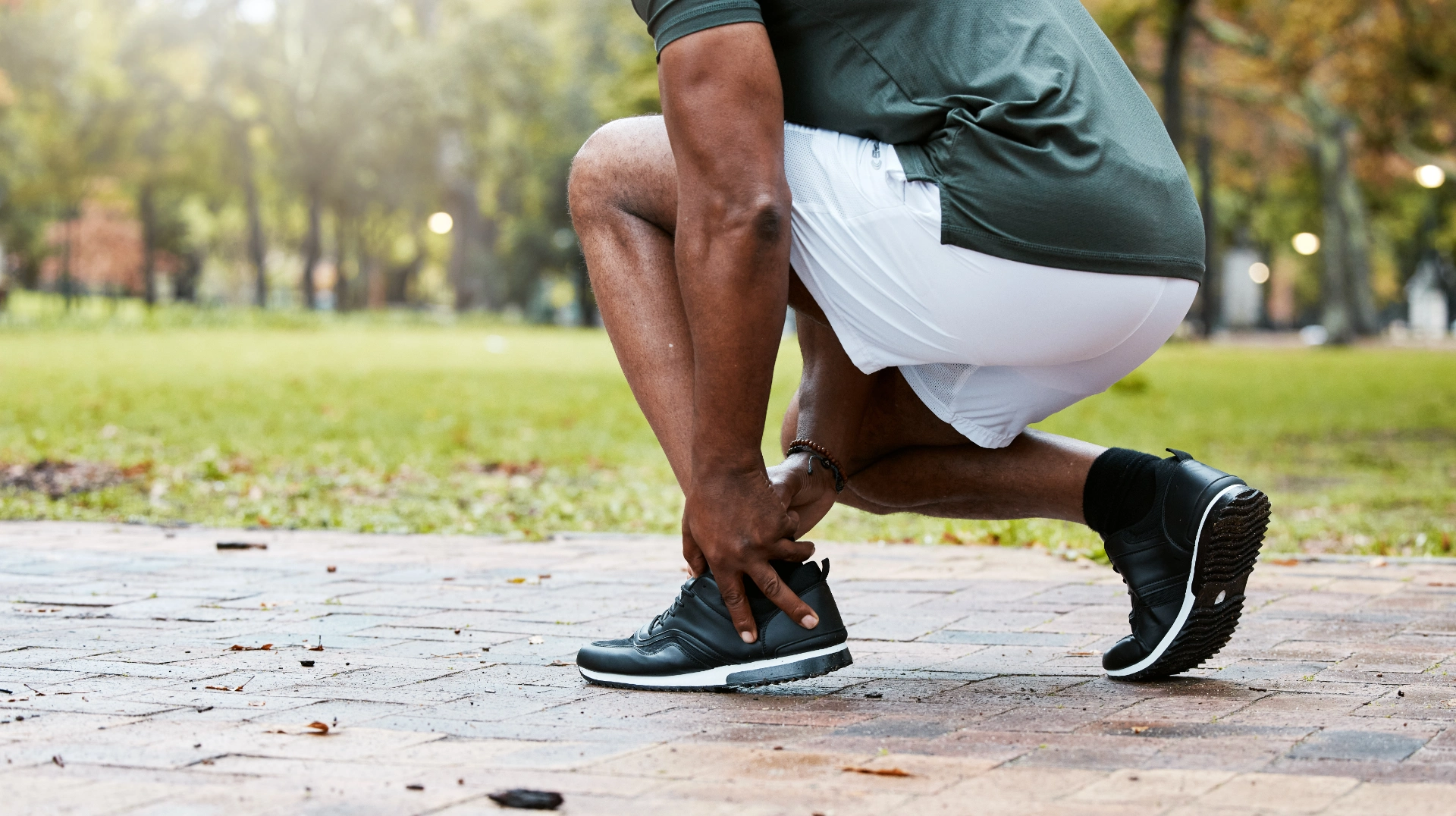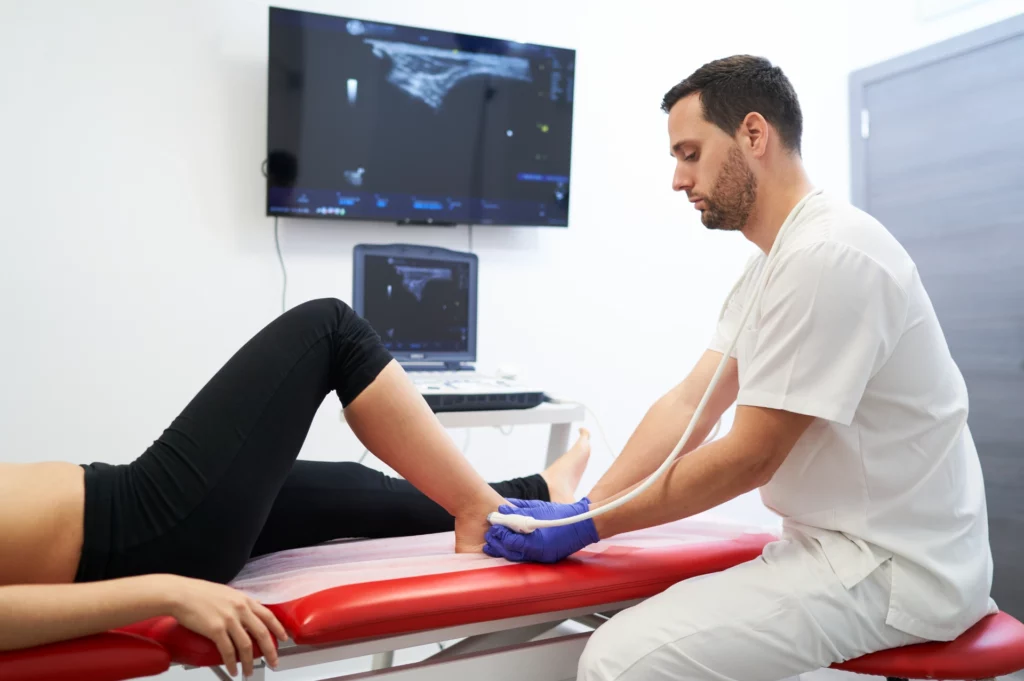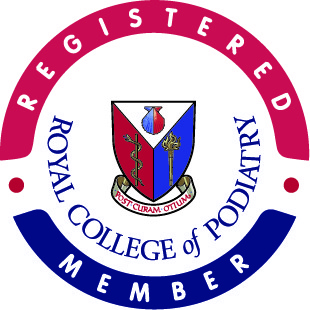EFFECTIVE ACHILLES TENDINOPATHY TREATMENT

Services
REGAIN YOUR ACTIVE LIFESTYLE AT MYFOOTMEDIC IN BEDFORD
The Achilles tendon, which runs down the back of your lower leg to the heel, is the largest, strongest tendon in the human body. As such, any damage to it can cause significant discomfort.
The Achilles tendon is crucial for shock absorption and stabilisation as we walk. It also gives us the flexibility to point our feet towards the ground and generates the force required to propel us forward with each step.
An injury to this band of tissue is known as Achilles tendinopathy. The effects can range from a mild strain to a complete rupture.
HOW MYFOOTMEDIC CAN HELP
At MyFootMedic, we offer a range of services to diagnose and treat Achilles tendinopathy, including:
- A biomechanical Assessment
- Rehabilitation
- Strengthening and stretching regimes
- Joint manipulation
- Soft tissue mobilisation
- Strapping and taping
- Insoles and Orthotics
- Footwear, activity, and prevention advice
- Steroid injections

ACHILLES TENDINOPATHY SYMPTOMS
You may experience pain, stiffness, or swelling that limits your mobility. Often, this manifests as:
- Stiffness in the Achilles tendon
- Increasing pain in your calf or heel
- Swelling at the back of your ankle
- The tendon may be tender to the touch
- A grating noise or creaking feeling
Achilles tendon pain may come and go throughout the day, and many people find it is worse in the morning or after exercise. Stiffness may develop more after periods of inactivity.
Sudden, severe calf or heel pain could indicate an Achilles tendon rupture. The area will likely become sore, swollen and bruised, and some people may hear it snap. It’s important to seek immediate medical care if this happens.
WHAT CAUSES ACHILLES TENDINOPATHY?
People of all age groups and from all walks of life can experience Achilles tendinopathy, however, it is particularly common in athletes.
Sometimes, Achilles tendinopathy is triggered by a specific injury, typically one occurring when you accelerate from a complete stand-still or jump suddenly.
However, repeated small amounts of damage through overuse can also contribute.
HOW TO TREAT ACHILLES TENDINOPATHY
If you believe that you are suffering from Achilles damage, it’s important to seek help as soon as possible. By detecting it early and finding the right Achilles tendinopathy treatment, you can prevent more serious harm.
A podiatrist can examine your leg, ankle, and heel to see what your range of motion is like. In rare cases, they may recommend an ultrasound scan.
INITIAL ACHILLES TENDINOPATHY TREATMENT MAY INCLUDE:
– Resting and taking time off from strenuous activities which may have caused it
– Painkillers to reduce the discomfort associated with an inflamed Achilles tendon
– Ice packs to reduce swelling
CHRONIC ACHILLES TENDINOPATHY
Pain that doesn’t improve after six weeks is known as chronic Achilles tendinopathy. In this situation you may require non-surgical treatments, such as:
- A biomechanical assessment – an examination of your lower limb function and gait. It aims to diagnose and uncover the cause of your foot pain or symptoms.
- Exercises -the correct exercise regime can help to strengthen and stretch your achilles tendon.
- Insoles & Orthotics – prescription orthotics can help improve your biomechanics and reduce the strain on your achilles.
- Manual therapies – techniques applied to your joints and muscles to improve the range and quality of motion at key structures of your body.
- Steroid Injections – helps to treat chronic inflammation, reducing swelling and pain.
In severe cases, your may be recommended surgery or injection therapy. This will only be if other treatments haven’t worked and the pain has been ongoing for a few months.
Achilles tendinopathy surgical treatment may leave scars and take time to heal.
HOW TO PREVENT IT
Achilles tendinopathy usually occurs because of overuse. When working or exercising, always make sure you:
- Use the correct equipment and techniques
- Limit repetitive motions that strain your Achilles tendons
- Build exercise up slowly, gradually increasing intensity
- Warm up and cool down
- Regular stretching
Ensuring you have a healthy diet and wear well-fitting, supportive footwear can also help prevent the issue arising. Keep an eye on underlying health conditions such as high blood pressure and Type 2 Diabetes.



